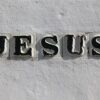Polls have opened in Iran’s presidential election amid concerns of a low turnout with the conservative head of the judiciary, Ebrahim Raisi, widely seen as the frontrunner. Nearly 60 million eligible voters in Iran will decide the fate of four candidates in the fray to succeed President Hassan Rouhani. The Guardian Council, a 12-member constitutional vetting body, under Supreme Leader Ali Hosseini Khamenei barred hundreds of candidates, including reformists and those aligned with Rouhani.
Polls opened at 7 am local time and will close at 1930 GMT but can be extended for two hours. The results are expected around midday on Saturday.
With uncertainty surrounding Iran’s efforts to revive its 2015 nuclear deal and growing poverty at home after years of United States sanctions, the turnout for the vote is being seen by Iranian analysts as a referendum on the leadership’s handling of an array of crises.
“Each vote counts … come and vote and choose your president … this is important for the future of your country,” said Khamenei after casting his vote in the capital, Tehran.
State television showed long queues outside polling stations in several cities.
State-linked opinion polling and analysts put hardline judiciary chief Raisi, 60, as the front-runner. If elected, Raisi would be the first serving Iranian president sanctioned by the US government even before entering office over his involvement in the mass execution of political prisoners in 1988, as well as his time as the head of Iran’s internationally criticized judiciary – one of the world’s top executioners.
Raisi, wearing a black turban that identifies him in Shia tradition as a direct descendant of Islam’s Prophet Muhammad, later voted from a mosque in southern Tehran, waving to those gathered to cast ballots.
A win for Raisi would confirm the political demise of pragmatist politicians like Rouhani, weakened by the US decision to quit the nuclear deal and reimpose sanctions in a move that stifled rapprochement with the West.
But it would not disrupt Iran’s bid to revive the agreement and break free of tough oil and financial sanctions, Iranian officials say, with the country’s ruling elite aware their political fortunes rely on tackling worsening economic hardship.
Former Central Bank chief, Abdolnasser Hemmati, is running as the race’s moderate candidate but hasn’t inspired the same support as outgoing President Hassan Rouhani, who is term-limited from seeking office again.
The remaining two candidates are 66-year-old hardliner Mohsen Rezaei and Amir Hossein Ghazizadeh, a longtime member of parliament from Mashhad.
Tensions remain high with both the US and Israel, which is believed to have carried out a series of attacks targeting Iranian nuclear sites and assassinating the scientist who created its military atomic program decades earlier.
Source: Aljazeera























